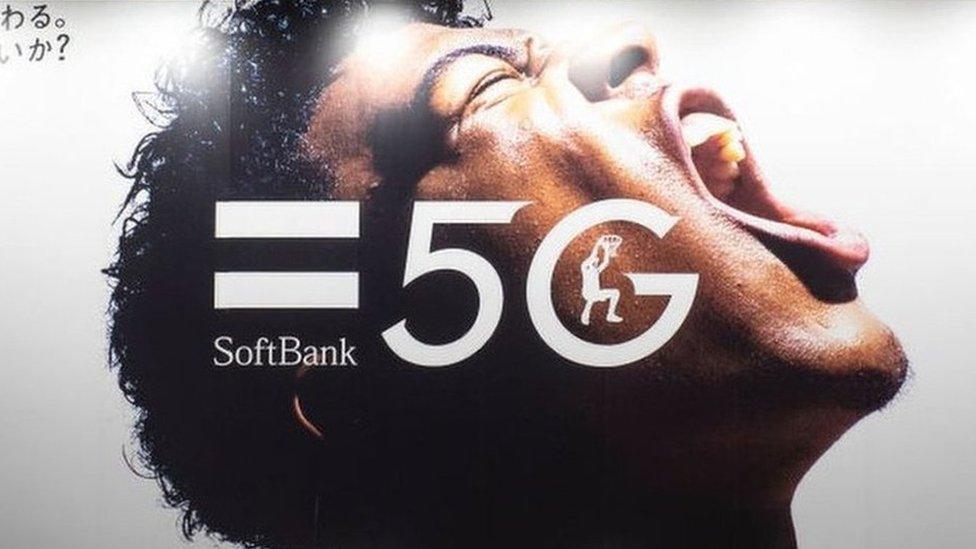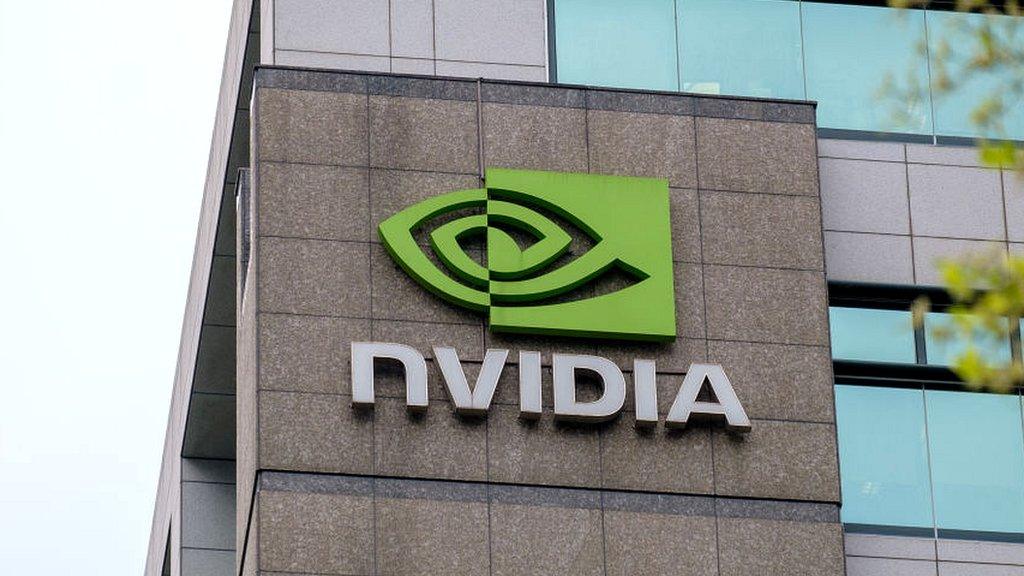UK chip firm Arm sale by Softbank collapses amid competition fears
- Published

Japanese conglomerate SoftBank has called off its planned sale of UK microchip designer Arm to US technology group Nvidia.
When the deal was first announced in September 2020 it was valued at around $40bn (£29.6bn).
SoftBank now aims to float Arm's shares on the stock market by the end of March next year.
The planned sale had faced major regulatory hurdles in the UK, United States and European Union.
SoftBank and Nvidia agreed to end their sale agreement "because of significant regulatory challenges preventing the consummation of the transaction, despite good faith efforts by the parties," the companies said in a joint statement to investors.
"We will take this opportunity and start preparing to take Arm public, and to make even further progress," SoftBank's chief executive Masayoshi Son added.
SoftBank did not give any other details about Arm's planned stock market listing, which has sparked speculation amongst investors over which stock exchange, or exchanges, will be chosen for the sale.
The statement also said that, in line with the agreement signed by both firms in 2020, SoftBank would keep a $1.25bn non-refundable deposit paid by Nvidia.
Under scrutiny
In December, the US Federal Trade Commission sued to block the buyout. It argued that competition in the growing market for microprocessors for self-driving cars and a new category of networking chips could be hurt if Nvidia owned Arm.
The planned takeover was also being scrutinised by UK and EU regulators amid concerns that it could push up chip prices and reduce choice and innovation.
Meanwhile, Arm's chief executive Simon Segars, who has been in the role since 2013, is stepping down.
He will be replaced by Rene Haas, who most recently served as president of intellectual property at Arm.
"With the uncertainty of the past several months behind us, we are emboldened by a renewed energy to move into a growth strategy and change lives around the world," Mr Haas said.
Mr Segars, who has been at the company for three decades, will stay on in an advisory role to help with the transition.
Arm's chip designs are at the heart of most smartphones and smart devices around the world.
It licenses its technology to major companies including Apple, Samsung and Qualcomm.
The company was incorporated in 1990 and made its London Stock Exchange debut eight years later.
In 2016, it was bought by SoftBank, which is one of the world's biggest technology companies.
In 2020, SoftBank decided to sell Arm to help shore up its finances after losing money on other investments, including shared office space firm WeWork and ride-hailing platform Uber.
In recent years, Nvidia has become America's most valuable chip company on the strength of its graphic processors.
Graphic processors are crucial for video gaming, as well as becoming more widely used for other areas of advanced computing including artificial intelligence applications.
Nvidia's attempt to take over Arm came against the backdrop of the global chips shortage.
Millions of products from cars to smartphones rely on computer chips but there are not enough currently being produced to meet demand.
As sales of devices soared during the pandemic, manufacturers have seen stocks of semiconductors plunge.

You may also be interested in:
Watch: How the semiconductor shortage could be a problem for you
Related topics
- Published3 December 2021

- Published16 November 2021

- Published28 October 2021
